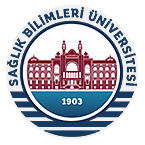ABSTRACT
Aims:
Nocturnal enuresis (NE) is a frequent pathological entity and it is known that children with NE have deeper sleep pattern and get diffuculty to wake up. In this prospective controlled study we aimed to determine which dimensions of sleeping quality were getting worsen in children with enuresis by using Medical Outcomes of Study Sleep Scale (MOS-SS).
Methods:
Between 2014 July to 2017 July 53 children with monosymptomatic NE and 27 controls were included in the study. After excluding any other urological and neurological disaseases, patients parents’ were requested to fill out the MOS-SS questionnaire form. According to questionnaire outcomes, groups were compared for the subdimensions of sleep quality.
Results:
There were no significant differences between the groups in terms of age, gender and other demographical features (p>0.05). According to MOS-SS questionnaire results, there was no difference between groups in terms of snoring, shortness of sleep, sleep hours per night and daytime somnolence scores (p>0.05, for all subdomains). In contrast, sleep disturbance scores were significantly higher in patients with enuresis compared to the control group while adequacy of sleep scores were statistically higher in control group (p<0.05).
Conclusions:
Assessment of sleep quality is very important for defining the underlying cause of NE. Children with NE are affected with sleep disturbance and do not have enough sleep adequacy according to MOS-SS questionnaire. Neurophysiologic studies would be needed for confirming the sleep disorders in addition to MOS-SS questionnaire.



